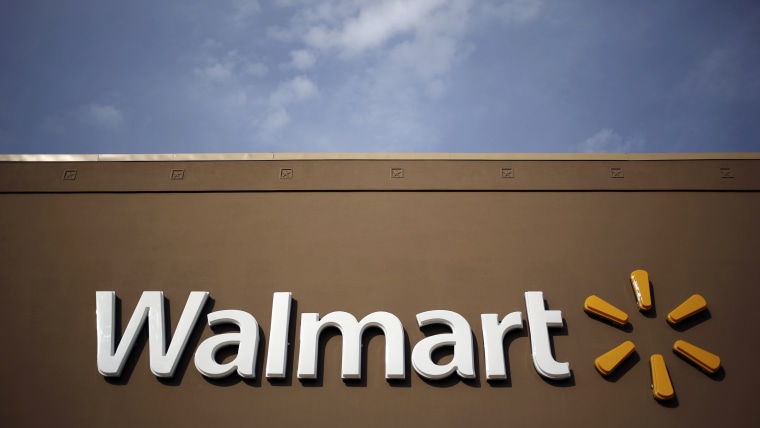As competitors from Macy's to Target one by one lifted the lid on their Black Friday strategies, Wal-Mart over the past few weeks had remained uncharacteristically quiet.
That changed on Thursday, when the world's largest retailer finally showed its hand regarding plans for the upcoming holiday season.
But while much of the speculation had centered on what time Wal-Mart would kick off its deals in-store, perhaps more surprising was the tack the company said it will take regarding its digital strategy.
For the first time ever, the vast majority — roughly 96 percent — of Wal-Mart's Black Friday deals will be available online, starting at 3:01 a.m. ET Thanksgiving Day.
Offering up the same deals online is a marked shift for the retailer, as the purpose of major Black Friday doorbusters has traditionally been just that — to get people superexcited about getting to the store. Once they're inside, the idea is to sell them on more items than they came in for.
Also, by getting shoppers to visit a physical store, it discourages them from jumping ship to a competitor — something that's effortless to do while browsing the Web.
According to a recent study by Deloitte, 56 percent consumers who don't find what they're looking for at a retailer's bricks-and-mortar store said they would first try to find the item on the company's website or in another one of its stores.
Online, however, only 15 percent said they would remain loyal.
Wal-Mart's latest announcement isn't the first surprise it has delivered regarding its online strategy this season. The retailer has already said that it would maintain its minimum $50 purchase requirement to earn free shipping, despite competitors including Target and Best Buyoffering free shipping on all online orders.
Michael Bender, Wal-Mart's chief operating officer of global e-commerce, reiterated that decision on Wednesday, saying consumers have been responding well to its new mobile check-in capability and rebranded pick-up locations.
He pointed out that shoppers can still get their online orders free of charge by picking them up in store, adding that the average basket during the holidays tends to carry a bit higher price tag than during the rest of the year.
"It's important for us to make sure that all of that is incorporated into the decisions that we make around free shipping," Bender said. "We're not concerned about it. Our customers are going to continue to shop with us."
Other changes to Wal-Mart's Black Friday strategy include an interactive circular, which will be released on its mobile app in advance of the print version. Shoppers can add items to their wish lists directly from the circular, and send them to friends and family.
And, in an effort to simplify its deals, Wal-Mart will hold only one Black Friday doorbuster event, as opposed to the wave of separate events it offered last season.
It will, however, bring back its one-hour guarantee, promising that customers in designated parts of the store will be able purchase five doorbusters between 6 p.m. and 7 p.m. These include Beats Studio Headphones for $169, a markdown of $130.95, and a LG 55-inch 4K TV for $698, or $300 off.
In an effort to remain in stock all season on key items in electronics and toys, the company has bought deeper into key categories, Foran said.
"That's important because that means if I'm a customer... I want to know there's a pretty good chance that that item [I want] was available for me," he said.
Wal-Mart shares are down 33 percent year to date, after the company said last month that revenue will be flat in fiscal 2016, and earnings will slide to between $4.40 and $4.70 a share — down from $4.84 last year.
